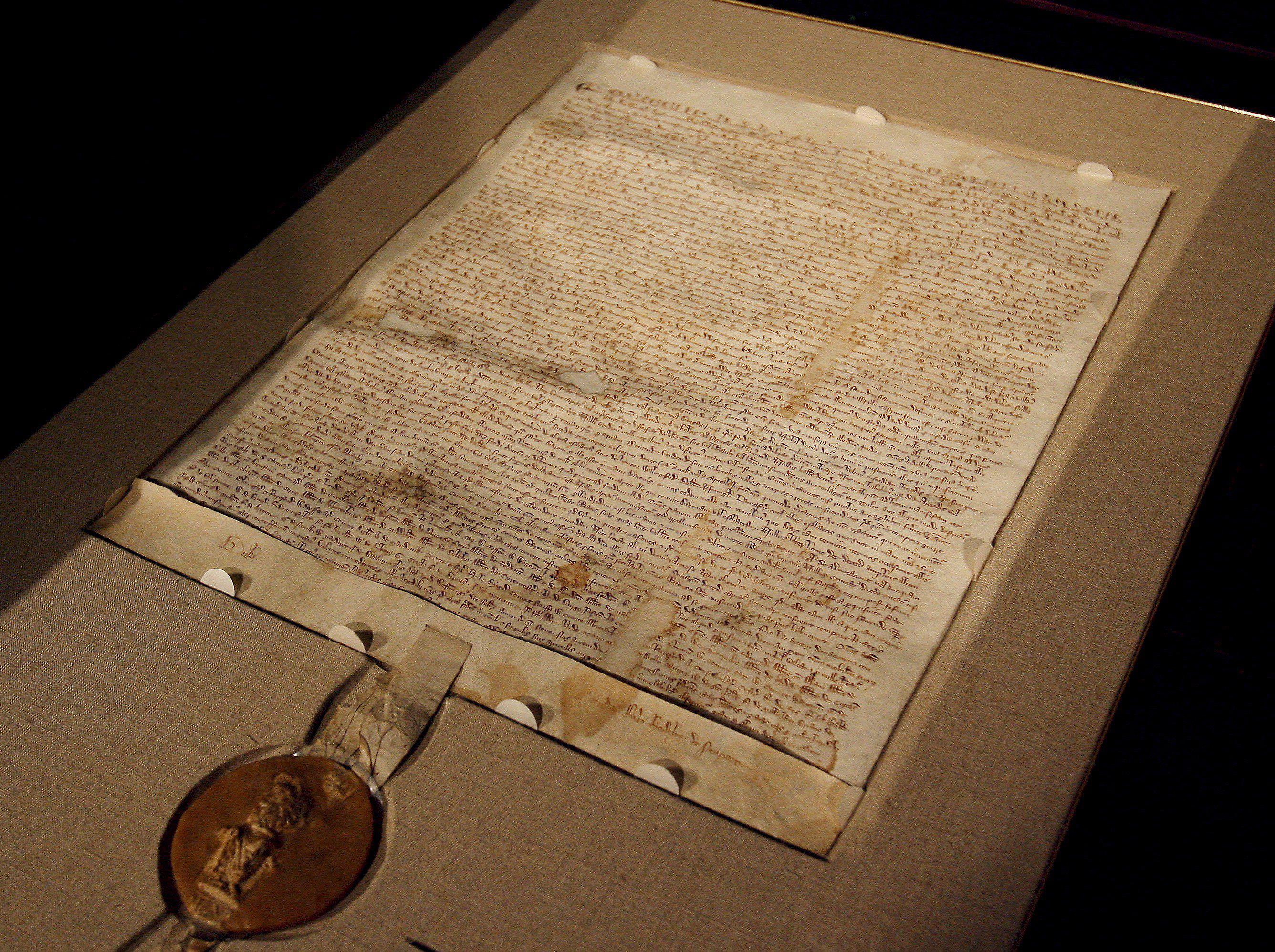
Historia Wielka Karta Swobód Magna Charta Libertatum prawo Historia Newsweek.pl
The Magna Carta, also know as Magna Carta Libertatum (the Great Charter of Freedoms), was so called because the original version was drafted in Latin. It was introduced by some of the most notable barons of the thirteenth century in an act of rebellion against their king, King John I (24 December 1199 - 19 October 1216).

The Magna Charta Libertatum
A Magna Carta Libertatum („Nagy szabadságlevél") az 1215. június 15-én Földnélküli János angol király által aláírt, a rendi jogokat biztosító szabadságlevél, az angol alkotmányfejlődés egyik legfontosabb állomása. Előzmények I. (Földnélküli) János számos kihívással szembesült uralkodása alatt.
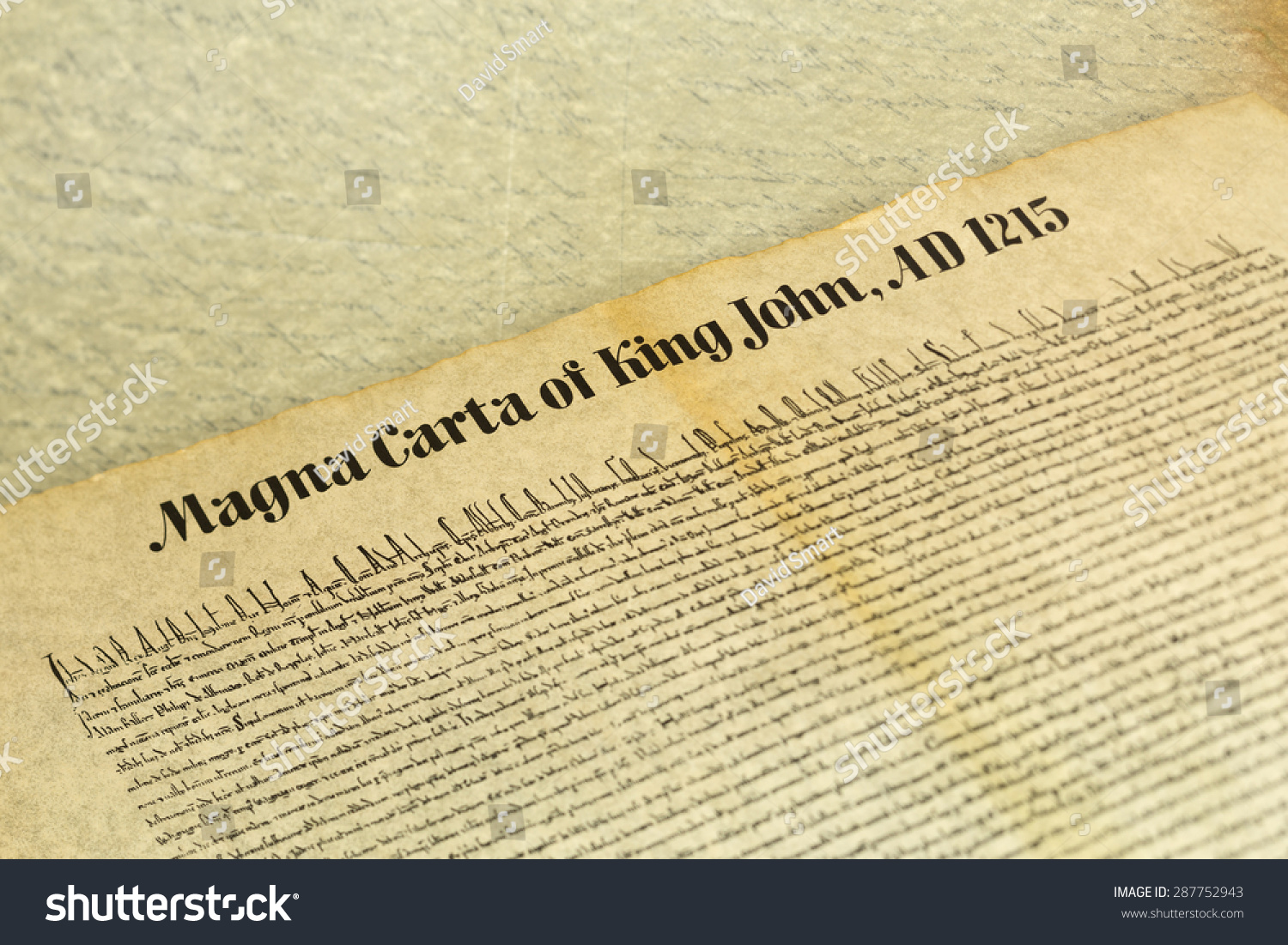
Magna Carta Libertatum, Is An EightHundred YearOld English Legal Charter That Required King
The Magna Carta. The Magna Carta, [1] also called Magna Carta Libertatum [2] is an English charter, originally issued in 1215. The year of its signing represents a key landmark in Britain's constitutional history. This is also the starting point of a long historical process that led to the rule of constitutional law today.

» Magna Charta LibertatumMedievista.it Medievista.it
The Magna Carta (The Great Charter) Preamble: John, by the grace of God, king of England, lord of Ireland, duke of Normandy and Aquitaine, and count of Anjou, to the archbishop, bishops, abbots, earls, barons, justiciaries, foresters, sheriffs, stewards, servants, and to all his bailiffs and liege subjects, greetings.
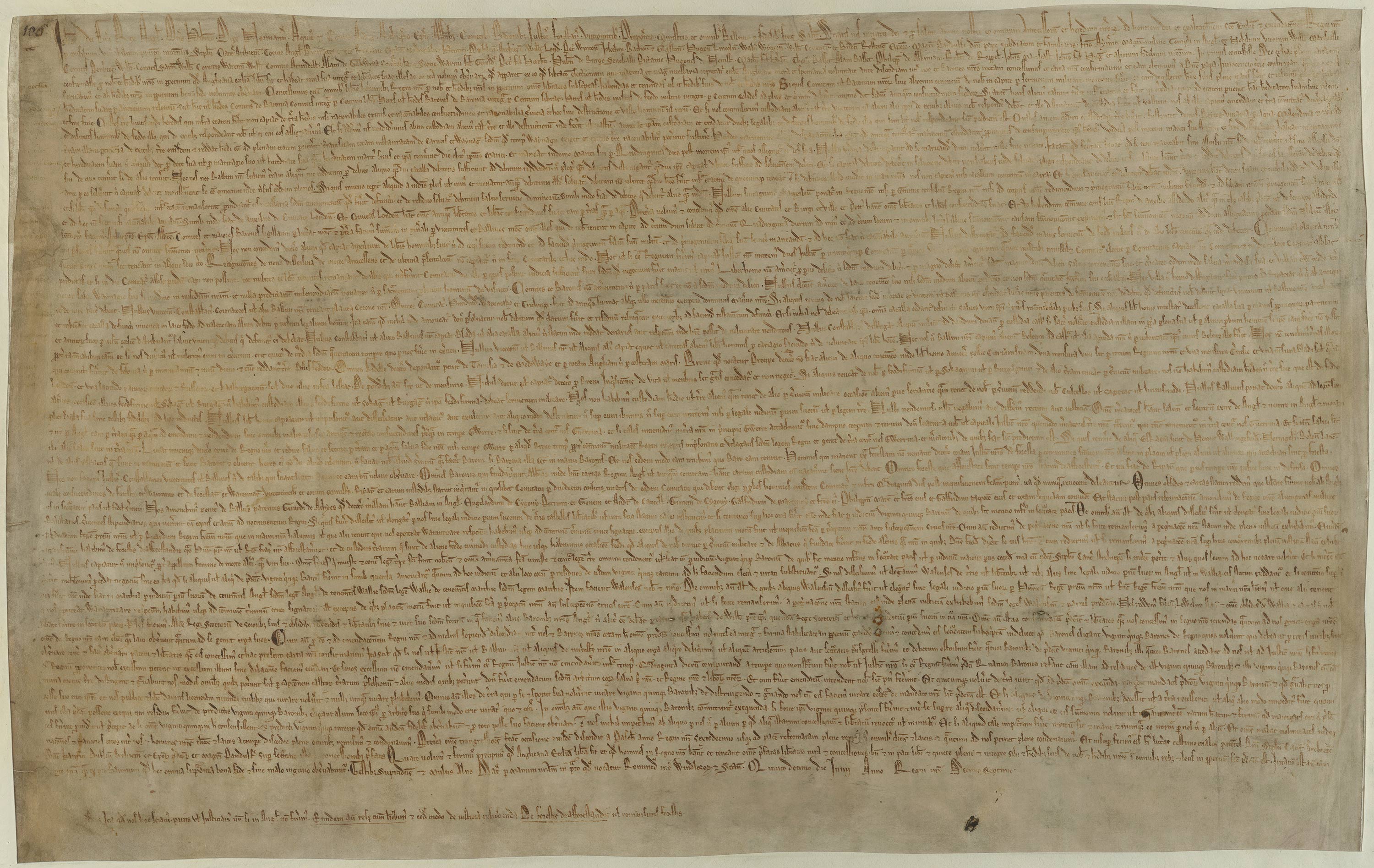
Magna Charta Libertatum HistorieBlog.cz
Magna Carta Libertatum (Medieval Latin for "Great Charter of Freedoms"), commonly called Magna Carta or sometimes Magna Charta ("Great Charter"), is a royal charter of rights agreed to by King John of England at Runnymede, near Windsor, on 15 June 1215. First drafted by the Archbishop of Canterbury, Cardinal Stephen Langton, to make peace between the unpopular king and a group of rebel barons.
ROĐENJE SLOBODE Pre 800 godina nastala je Magna Carta libertatum
Magna Carta (Latin for "Great Charter," literally "Great Paper"), also called Magna Carta Libertatum ("Great Charter of Freedoms"), is an English charter originally issued in 1215. Magna Carta was the most significant early influence on the long historical process that led to the rule of constitutional law today. Magna Carta influenced many common law documents, such as the United States.

Magna Carta Libertatum Is A Royal Charter Of Rights Agreed To By King John Of England At
The Magna Carta Libertatum (Latin for 'The Great Charter of Liberties'), was a charter of rights agreed to by King John on June 15th, 1215. It paved the way for parliamentary style of government, justice for all, equality before law, accountability of the crown and limitations on the powers of the monarch. A Charter in the Magna Carta.
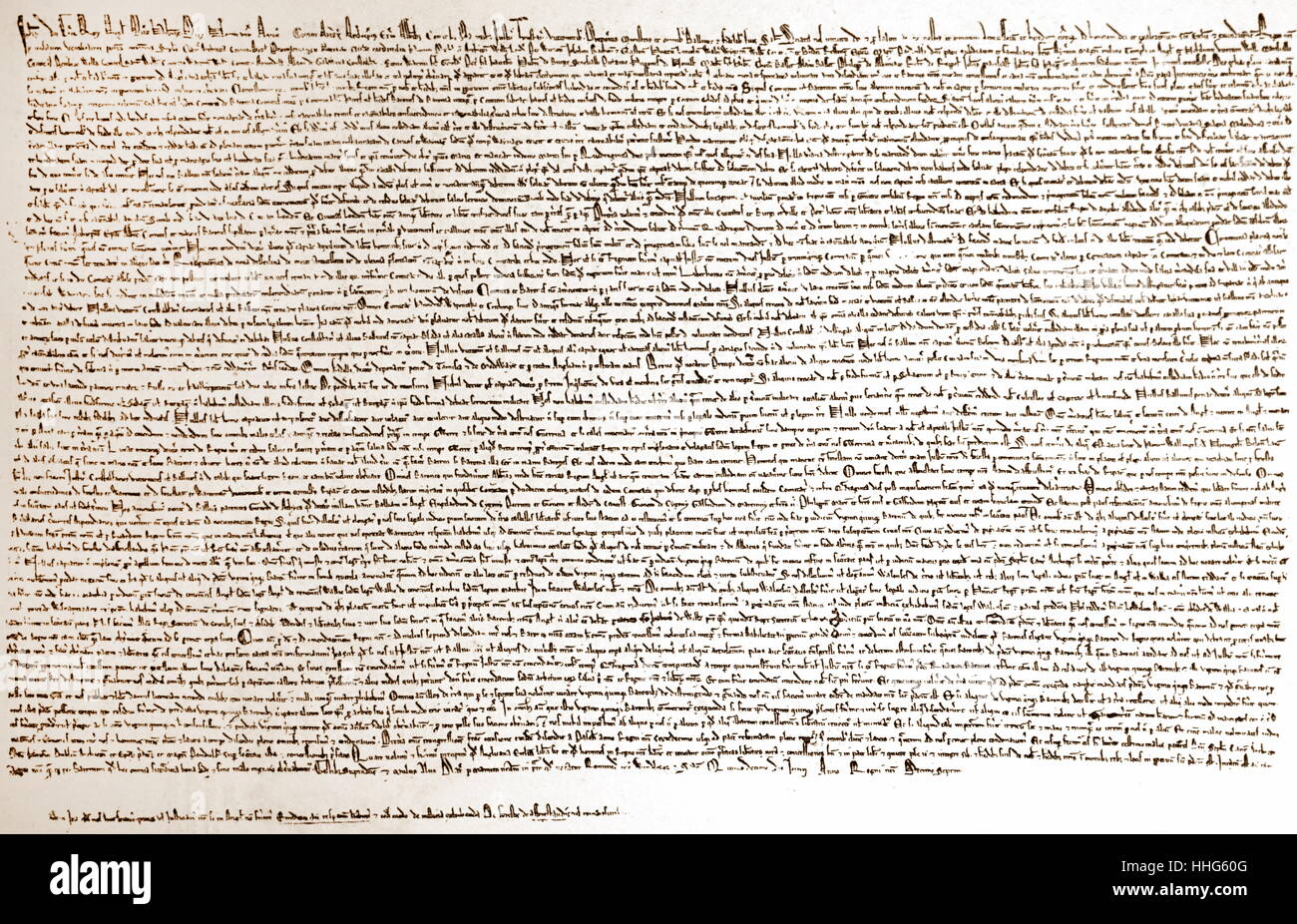
La Grande Carta, Magna Charta Libertatum Foto stock Alamy
The Magna Carta is a basic document that states liberties guaranteed to the English people. It proclaims rights that have become a part of English law and are now the foundation of the constitution of every English-speaking country.

The Magna Carta 1215 English History YouTube
1215: Magna Carta (Latin and English) Subject Area: Law Source: The Roots of Liberty: Magna Carta, Ancient Constitution, and the Anglo-American Tradition of Rule of Law, edited and with an Introduction by Ellis Sandoz (Indianapolis: Liberty Fund, 2008). Appendix: Text and Translation of Magna Carta
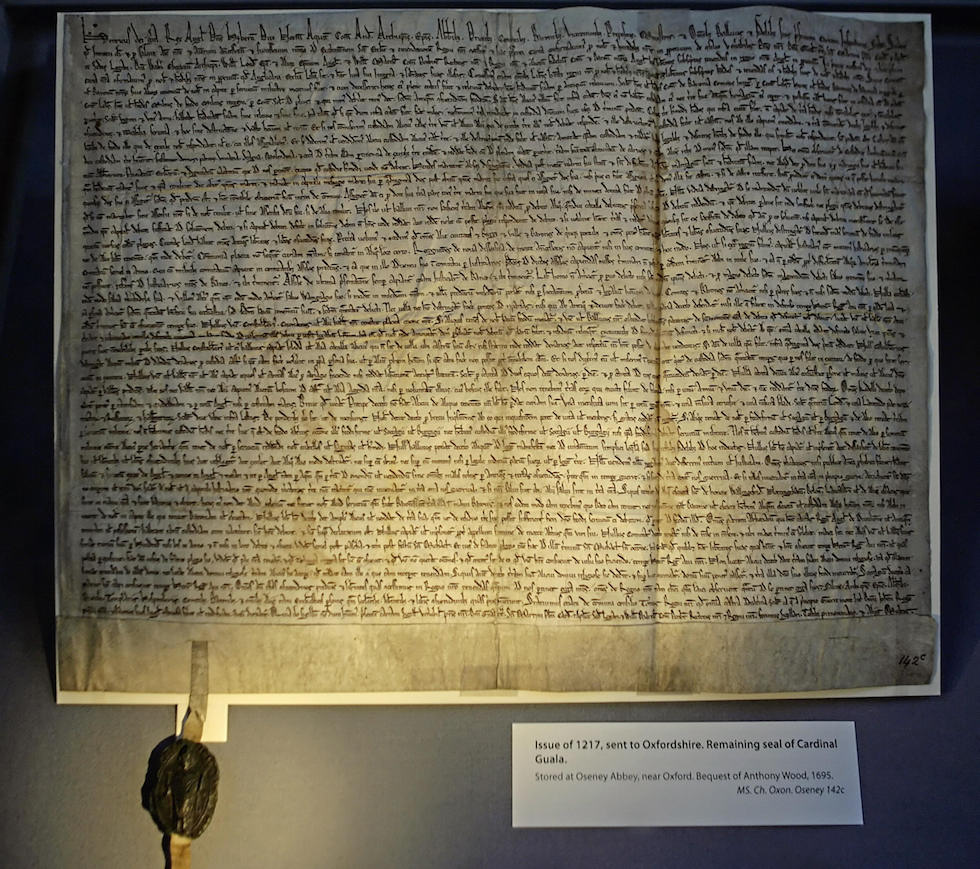
Cos'è la Magna Carta Libertatum Il Post
Magna Carta was issued in June 1215 and was the first document to put into writing the principle that the king and his government was not above the law. It sought to prevent the king from exploiting his power, and placed limits of royal authority by establishing law as a power in itself. In 2015 the Houses of Parliament, along with the people.

Magna Carta Libertatum Is A Royal Charter Of Rights Agreed To By King John Of England At
This charter of liberties issued by King John in April 1215 was the first and most enduring statement of the rights of "freeborn Englishmen." This facsimile is one of three surviving examples of the original document, revered for its protections against arbitrary imprisonment and seizure of property without due process of law.
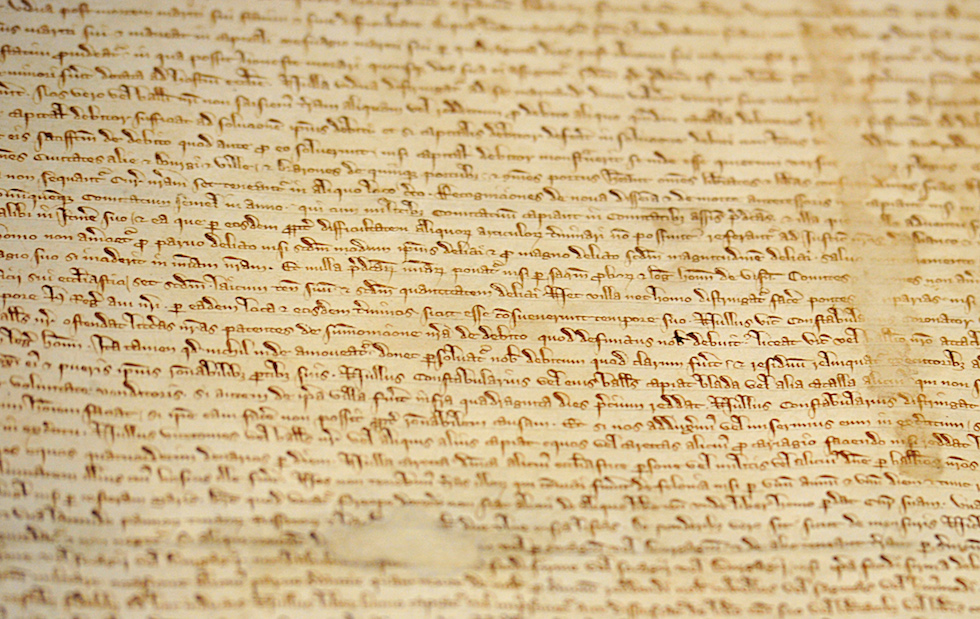
Cos'è la Magna Carta Libertatum Il Post
Magna Carta: My Digital Rights. Learn more about one of the world's most influential documents with our Magna Carta teaching resource. The Magna Carta was granted by King John of England on June 15 1215. In doing so, the King agreed to demands from Barons and Bishops to limit his powers. Among the clauses in the charter, all 'free men' were.

Magna Charta Libertatum
Enlarge Magna Carta, 1297: Widely viewed as one of the most important legal documents in the history of democracy. On display in the David M. Rubenstein Gallery. Presented courtesy of David M. Rubenstein. "The democratic aspiration is no mere recent phase in human history . . . It was written in Magna Carta." --Franklin Delano Roosevelt, 1941 Inaugural address On June 15, 1215, in a field at.

historia i ja Magna Charta Libertatum 15 czerwca 1215 r. 800 lat prawa...
Magna Carta Libertatum, commonly referred to as the Magna Carta, or "Great Charter," is a historical document drafted by English Cardinal and Archbishop of Canterbury Stephen Langton, and agreed to by King John of England in 1215.It was an attempt to broker peace between the unpopular King and a group of barons rebelling against his rule. It is considered the first document of its kind.
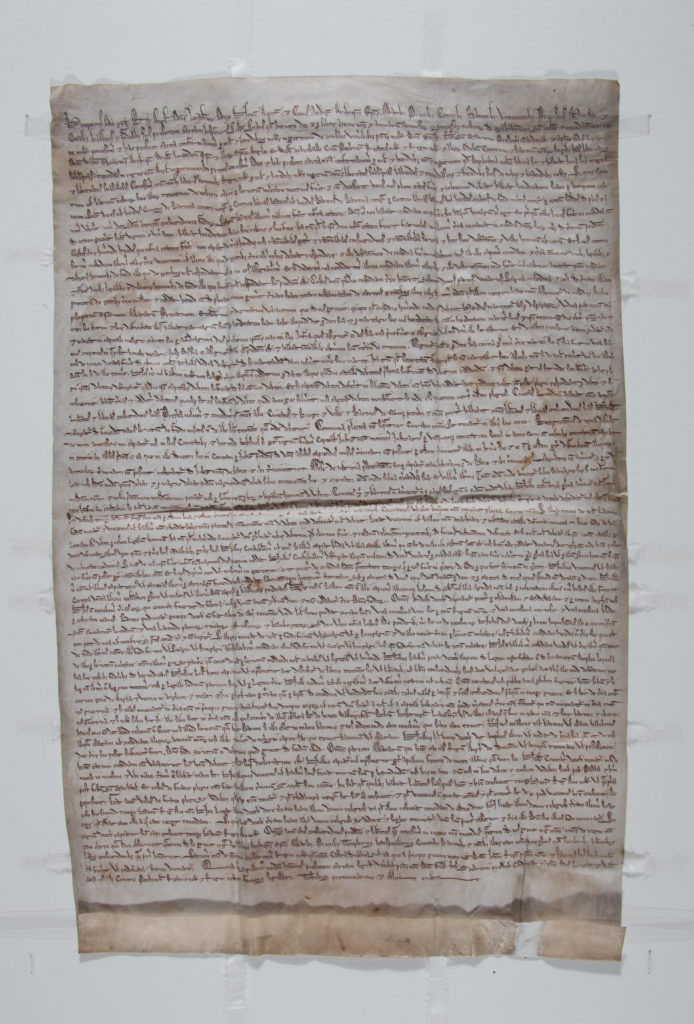
Vercelli la Magna Charta Libertatum in mostra dal 23 marzo al 9 giugno 2019 Itinerari e Luoghi
The Magna Carta (1215) Magna Carta, or "Great Charter," signed by the King of England in 1215, was a turning point in human rights. The Magna Carta, or "Great Charter," was arguably the most significant early influence on the extensive historical process that led to the rule of constitutional law today in the English-speaking world.
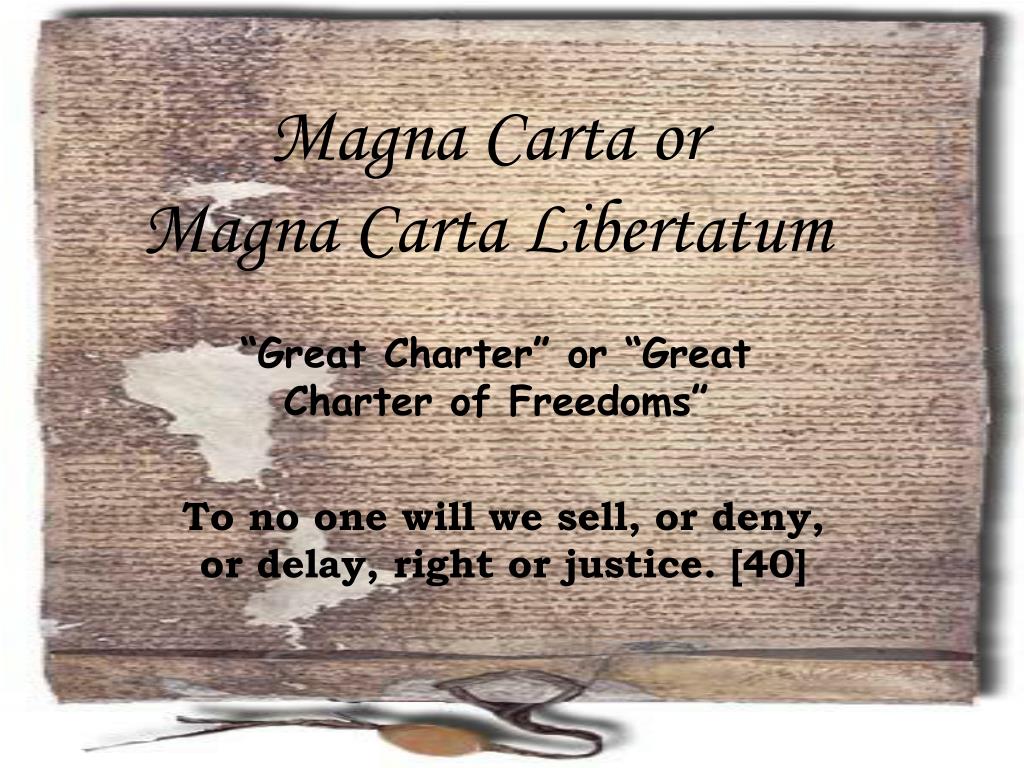
MAGNA CARTA LIBERTATUM PDF
Magna Carta, charter of English liberties granted by King John on June 15, 1215, under threat of civil war and reissued, with alterations, in 1216, 1217, and 1225.